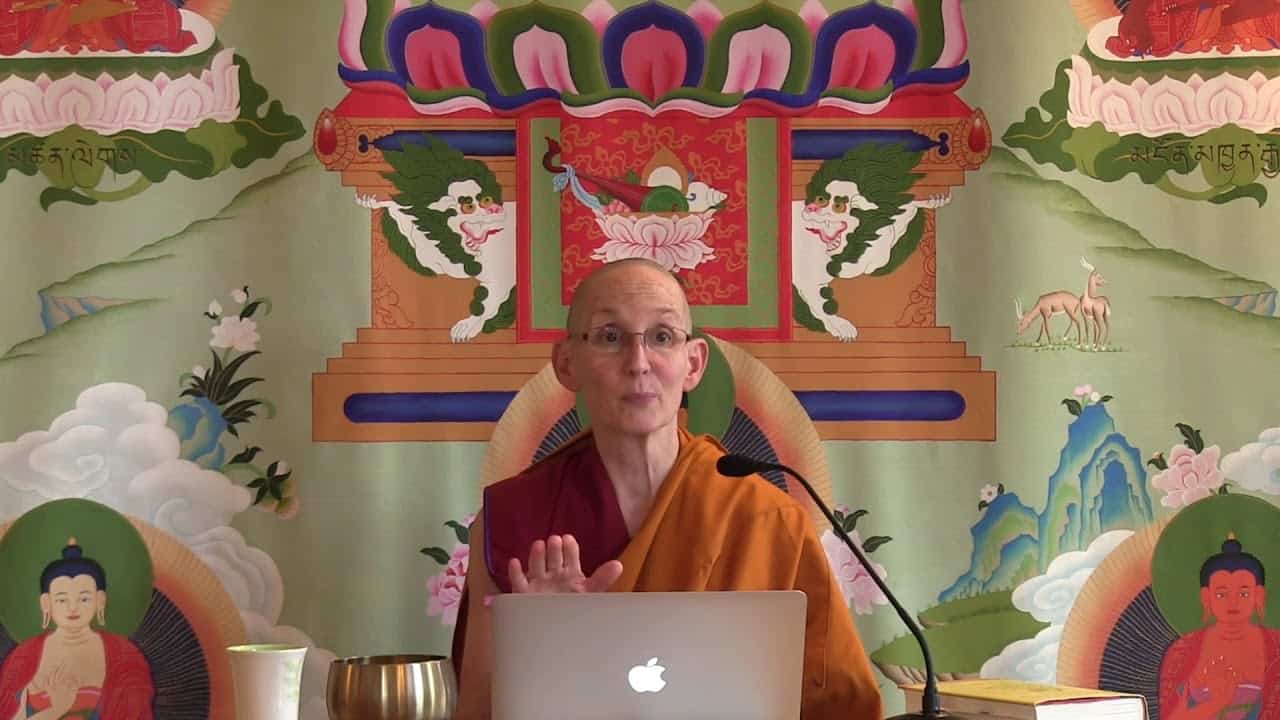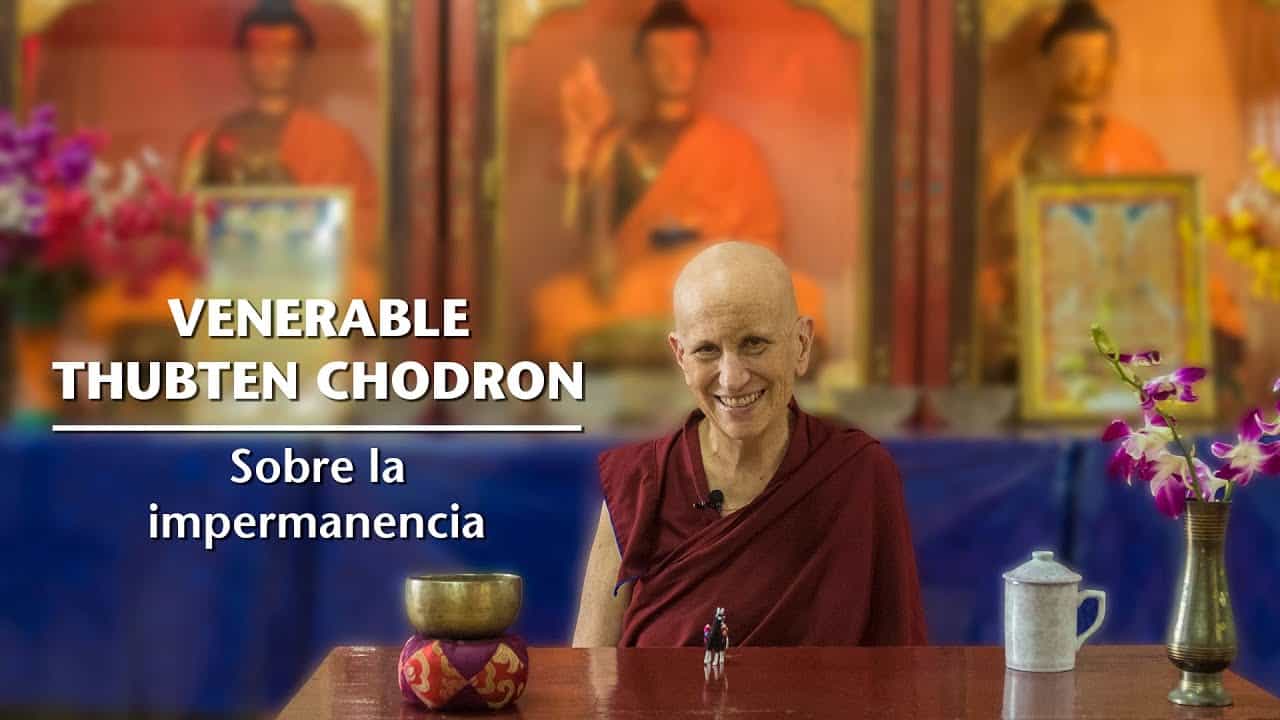About attachment
About attachment
A series of talks given at Tushita Meditation Centre in Dharamsala, India, on August 30, 2018.
- Definition of attachment
- Different types of attachment
- Words for nuances of attachment
Ok, so this is a thing of terminology and translation. To define our terms-here, when we say “attachment” as one of the three poisons, we’re talking about a very specific mental state. This is a mental state that is based on exaggerating the good qualities of someone or something. Already we can see something’s wrong because it’s based on exaggeration. Then, based on that exaggeration, we cling. “I want this. I don’t want to be separated from it.” That’s what attachment is. That is very different in psychology when you talk about the attachment that a newborn has to develop towards their primary caregiver for their own psychological well-being. So the attachment between the child and the caregiver, usually the mother, could be somebody else, that’s very important for the child’s well-being as they grow older. That’s not the kind of attachment that we are talking about here, okay. It’s a completely different thing.
Related to that is the difficulty of translation. What do we mean by the word “desire?” There are different kinds of desire. One kind of desire is the attachment, “I want that. I desire this. This is going to make me happy. I’ve got to get it.” You know. Another kind of desire is a virtuous aspiration. “I desire to develop compassion and wisdom. I desire to become a bodhisattva.” That virtuous aspiration can also be called desire, but it’s very different from the kind of desire that is attachment.
It’s good to try and develop different words for these different nuances, but we don’t really have so many words in English. Sometimes, they say greed instead of attachment, but greed doesn’t really give the flavor that attachment does. Sometimes, they say lust but most people think of sexual lust. That doesn’t fulfill everything that is covered by attachment. So you have to look at the context when you are using the word attachment or the word desire to see if it’s talking about something that is afflictive with ignorance and wrong conception, or something that is beneficial.
Venerable Thubten Chodron
Venerable Chodron emphasizes the practical application of Buddha’s teachings in our daily lives and is especially skilled at explaining them in ways easily understood and practiced by Westerners. She is well known for her warm, humorous, and lucid teachings. She was ordained as a Buddhist nun in 1977 by Kyabje Ling Rinpoche in Dharamsala, India, and in 1986 she received bhikshuni (full) ordination in Taiwan. Read her full bio.


